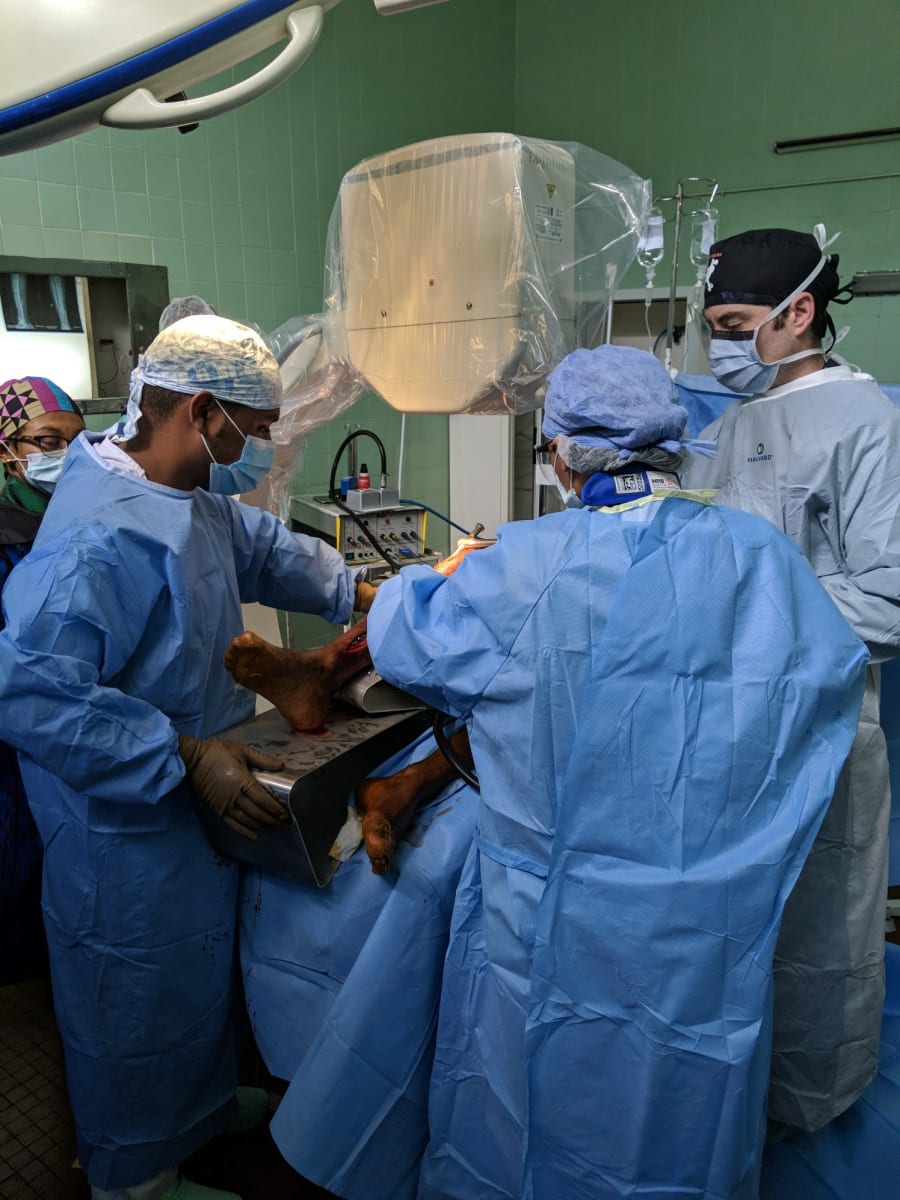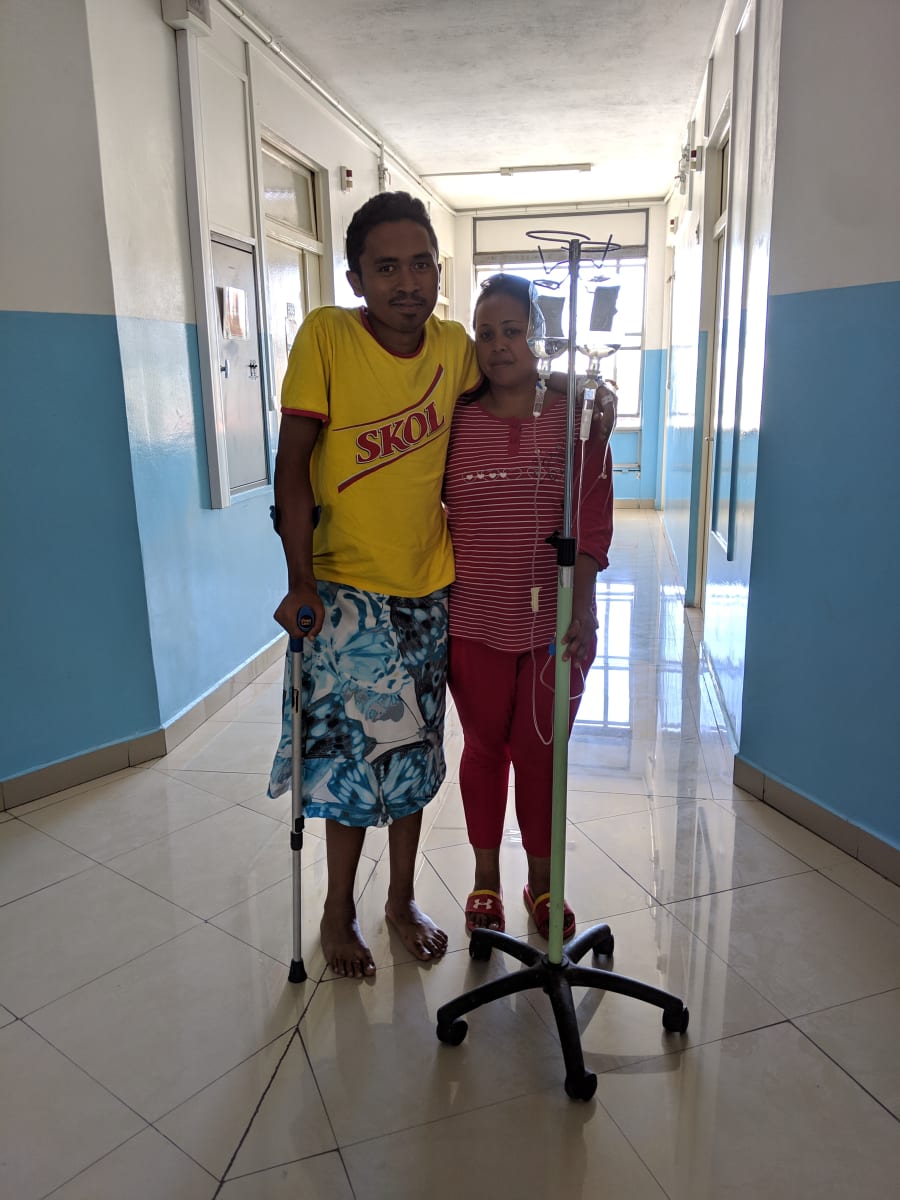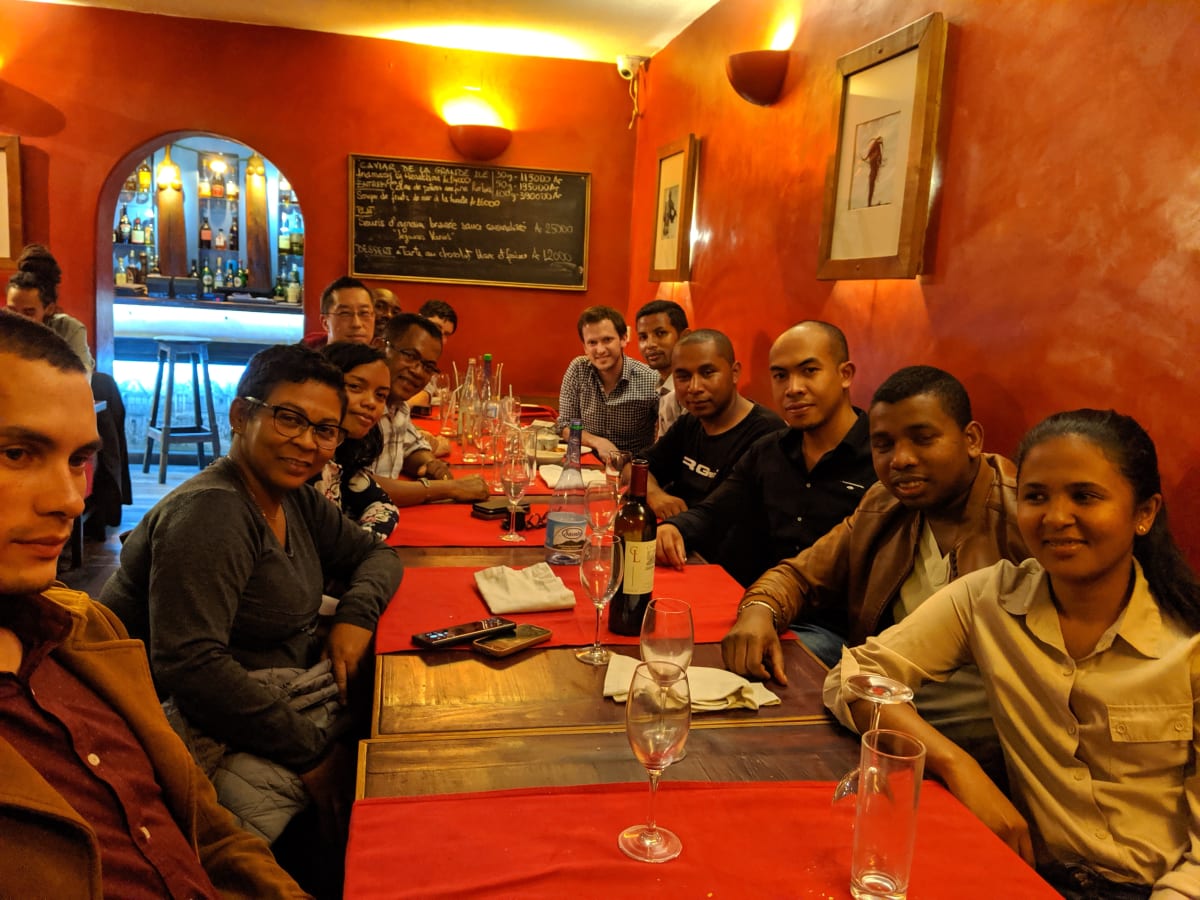The Departments of Orthopaedic and Plastic Surgery at the University of Pennsylvania and the Children's Hospital of Philadelphia, in partnership with MadaHealth, Inc., are traveling to Madagascar on a 2 week surgical/educational trip to the Joseph Ravoahangy Andrianavalona Hospital, the main University hospital in Antananarivo, the capital of Madagascar. We will be exchanging lectureships, case presentations, surgical demonstrations/performing orthopaedic/plastic surgeries, hold skills workshops, and collect research data.
Currently, 2 attending surgeons and 4 senior/chief residents are planning to attend. An additional plastic surgery fellow may also be attending.
This trip is the first of its kind in Madagascar.
By way of background, I personally have lived in Madagascar for 2 years during undergraduate school. I speak Malagasy, the native language of Madagascar, and I taught Malagasy at the university level for 10 years. I founded MadaHealth, Inc. to improve perioperative and surgical outcomes in Madagascar through evidence-based practices. In addition, MadaHealth is establishing the country's first clinical research institution in collaboration with the Ministry of Health. I am organizing this trip and have secured partnerships with Penn, the Ministry of Health including local IRB-approved research projects, and am now searching for funding to defray/subsidize the cost of our trip.
Our trip represents the first orthopaedic surgery mission to Madagascar and is the first step in a long-term partnership with the university there. Patients will receive free surgeries and local surgeons will receive training and instruction on new and existing surgical techniques.
Traumatic injury has been recognized as a major cause of morbidity and mortality that disproportionally affects low and middle-income countries (LMICs). The Lancet Commission on Global Surgery reports 5 billion people without access to safe, affordable surgical and anesthesia care; 33 million individuals facing catastrophic health expenditure every year due to payments for surgical and anesthesia services; and over 4 million deaths per year attributed to trauma. A disproportionate number of reported traumatic injury is musculoskeletal in nature. Recent studies focused on pediatric trauma depict a higher burden of pediatric trauma in LMICs compared to high income countries, with up to 58% of pediatric trauma-related surgeries requiring fracture fixation.
Madagascar ranks among the top 10 poorest countries in the world. Additionally, Madagascar’s surgical workforce density is projected to be among the lowest in the world, leaving millions without access to safe surgery.
Through a unique partnership with the University of Antananarivo, we have identified unmet orthopaedic and plastic surgical needs in Madagascar. We are targeting sustainable surgical training through local and video demonstrations in order to improve patient-centered outcomes and decrease the cost of providing orthopedic surgical care in Madagascar.
The Joseph Ravoahangy Andrianavalona Hospital at the University of Antananarivo is a fully capable surgical hospital with 6 operating rooms, 24/7 on-call pediatric and adult orthopaedic trauma teams, and an orthopaedic residency program. In 2017, over 600 urgent orthopaedic trauma cases were performed, but many cannot receive surgery from prohibitive costs and limited hospital resources and surgeon technical know-how.
Our first trip will target primarily orthopedic trauma and potentially cleft lip/palate surgery.
We anticipate about 100-200 patients will receive surgical care, and several more hundred will receive expert nonoperative management. The entire orthopaedic surgery program at the University hospital will receive technical demonstrations, hands-on practice, and surgical demonstrations. In addition to the proposed educational and surgical exchange, we have established a research collaboration with Madagascar and have been invited to expand to a long term surgical educational exchange.
Our specific goals are to: 1) Design, develop, and implement the first orthopaedic surgical trauma registry in Madagascar. This registry will also constitute the first electronic healthcare record-keeping system in Madagascar. 2) Establish a National Clinical Research Institute in partnership with MadaHealth, Inc., the Ministry of Health, and the University of Antananarivo. 3) Apply to SIGN Fracture Care International to obtain free, subsidized orthopaedic implants for Madagascar hospitals. SIGN Fracture Care International is 501(c)(3) nonprofit organization that provides free orthopedic implants to developing nations. Developing a trauma registry (goal #1) is the initial step in applying to become a SIGN-sponsored country. Achieving sponsorship from SIGN will allow hospitals and patients all over Madagascar to receive free implants.
Our mission trip as described will set these goals in motion.
We would love to discuss our goals and trip with you in further detail if needed! Any assistance is greatly appreciated.










We were able to perform 22 surgeries in 6.5 days - very busy! We also collaborated with SIGN International to donate free orthopedic nails to the country of Madagascar and we performed the first SIGN nails in the country - 9 in total! It was a great learning experience for both parties - locals and us alike - as we scrubbed together in the operating room, went out for food together, worked late together, and rounded together on the wards. We learned so much from them and hope to continue this collaboration.
We performed orthopedic trauma surgery and some plastic surgery procedures, including femoral nails, tibial nails, burn contractures, addressing neglected fractures/nonunions/malunions, correcting foot deformities from chronic neglected clubfoot, and much more. We were able to show them that people could walk right after surgery when treated with a nail rather than 6+ weeks of traction in bed. The patients were very grateful and rounding on them each day was a delight - their eyes lit up as we told them we could help them get back to their previous life and working again.